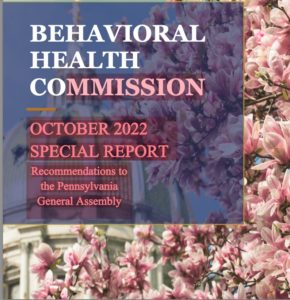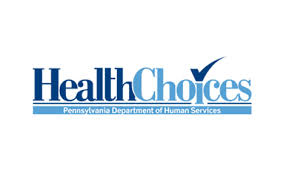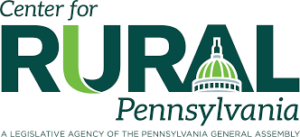PA Health Policy Update for February 17
The following is an update of selected state health policy developments in Pennsylvania from February 11-17. (Some of the language used below is taken directly from state documents.)
General Assembly
The state House of Representatives will convene for session on Tuesday, February 21 at 12:00 p.m. The state Senate is scheduled to return on Monday, February 27.
 Department of Human Services
Department of Human Services
- The fee-for-service subcommittee of the Department of Human Services (DHS) Medical Assistance Advisory Committee met on Wednesday, February 8. See the presentation made by Office of Medical Assistance officials during that meeting.
- DHS’s Office of Long-Term Living offered a presentation during the February 14 meeting of the Medical Assistance Advisory Committee’s long-term services and supports subcommittee. Find that presentation here.
- DHS has published a notice of its funding allocation for FY 2023 inpatient disproportionate share hospital (DSH) payments to qualifying inpatient acute-care general, psychiatric, and rehabilitation hospitals and qualifying psychiatric and rehabilitation units of acute-care general hospitals; outpatient supplemental payments to qualifying inpatient acute-care general hospitals; direct medical education payments to qualifying inpatient acute-care general hospitals; and certain DSH and supplemental payments to new hospitals. It is not otherwise changing the qualifying criteria or payment methodology for these payments. These payments will amount to $257.76 million in total funds. Learn more from this Pennsylvania Bulletin notice.
- DHS has published a notice of its funding allocation for DSH payments to qualifying acute-care general hospital burn centers, to qualifying acute-care general hospitals providing obstetrical and neonatal services, to critical access and qualifying rural hospitals, and to qualifying acute-care general hospitals that treat a high percentage of Medical Assistance patients under 18 years of age. Together, the payments amount to $107.655 million in total state and federal funds. Learn more from this Pennsylvania Bulletin notice.
- DHS has published procedure codes and payment rates for the administration of the Pfizer and Moderna bivalent booster dose of the COVID-19 vaccines. Find the codes, the rates, and their effective dates in this Pennsylvania Bulletin notice.
- DHS’s Office of Long-Term Living has informed stakeholders that the Centers for Medicare & Medicaid Services has approved renewal of the Community HealthChoices waiver, effective January 1, 2023, for five years. See the DHS message here.
- DHS has published a notice announcing that it will increase fees in the Medical Assistance Program for certain ambulance transportation services in both the fee-for-service and managed care delivery systems, effective with dates of service on and after January 1, 2023. Those fees will be not less than $325 for basic life support ambulance transportation services, not less than $400 for advanced life support ambulance transportation services, and not less than $4 per loaded mile for each loaded mile beyond 20 loaded miles for ground ambulance transportation. Learn more from this Pennsylvania Bulletin notice.
Department of Health
- The Department of Health (DOH) has issued a health alert to providers advising them about a possible nation-wide increase in invasive group A streptococcal (iGAS) infections in children. This increase, however, reflects only a return to pre-pandemic levels. The alert includes information about the condition and offers guidance for clinicians and laboratories. Find the alert here.
- DOH has published information about its Medical Care Availability and Reduction Error (MCARE) Act surcharge for FY 2023, a per unit assessment of approximately $156.56 payable by June 1. Learn more about the surcharge and the providers to which it applies from this Pennsylvania Bulletin notice.
- DOH has published information about its Nursing Home Patient Safety Trust Fund surcharge for FY 2023. That surcharge will be $13.83 per nursing facility bed. Learn more from this Pennsylvania Bulletin notice.
- DOH has published a list, as required by regulation, of hospitals that have chosen to exercise their religious or moral beliefs regarding the provision of certain contraception-related emergency services and will instead refer patients to other hospitals to receive such services. Learn more from this Pennsylvania Bulletin notice.
COVID-19: By the Numbers
- The number of new COVID-19 cases reported daily in Pennsylvania and the number of new daily deaths in the past week remained at the same levels as last week.
- According to the Department of Health, the number of Pennsylvanians hospitalized with COVID-19 and on ventilators held steady over the past week while the number in hospital ICUs declined 25 percent.
- The CDC reports a six percent decline in the seven-day daily average of new hospital admissions in Pennsylvania because of COVID-19.
- For the week ending February 15, five Pennsylvania counties experienced a moderate rate of community transmission of COVID-19; 16 counties experienced a substantial rate of community transmission; and the remaining 46 counties experienced a high rate of community transmission – all the same numbers as last week.
Department of Drug and Alcohol Programs
In response to the continuing challenge health care providers are having maintaining an adequate workforce, the Department of Drug and Alcohol Programs is conducting a workforce climate survey among drug and alcohol service providers to learn about which jobs and positions are in short supply or understaffed, the challenges these providers face, what they are doing to address them, and how they think the state can help them address those challenges. Find that survey here.
Independent Regulatory Review Commission
 The Independent Regulatory Review Commission has issued comments in response to regulations proposed by the State Board of Nursing that address licensure by endorsement and reactivation. Find those comments in this Pennsylvania Bulletin notice.
The Independent Regulatory Review Commission has issued comments in response to regulations proposed by the State Board of Nursing that address licensure by endorsement and reactivation. Find those comments in this Pennsylvania Bulletin notice.
Stakeholder Events
DHS – Medical Assistance Advisory Committee – Consumer Subcommittee – February 22
The consumer subcommittee of the Medical Assistance Advisory Committee will meet virtually on Wednesday, February 22 at 1:00. Learn more from the meeting’s agenda and go here to register to participate.
DHS – Medical Assistance Advisory Committee Meeting – February 23
The Medical Assistance Advisory Committee will meet virtually on Thursday, February 23 at 10:00. For the meeting agenda go here and to register to participate go here.
DHS – Managed Long-Term Services and Supports Subcommittee Meeting – March 1
The Medical Assistance Advisory Committee’s Managed Long-Term Services and Supports Subcommittee will meet in Harrisburg on Wednesday, March 1 at 10:00. For information on the location of the meeting or how to participate virtually, see this DHS notice.
Department of Aging – Pennsylvania Long-Term Care Council – March 9
The Department of Aging’s Long-Term Care Council will meet in Harrisburg on Thursday, March 9 at 10:00. For information on the location of the meeting or how to participate virtually, see this Pennsylvania Bulletin notice.
Department of Drug and Alcohol Programs – Adolescent ASAM Criteria – March 9
The Department of Drug and Alcohol Programs will offer a training program for adolescent service providers on two dates: March 9 and May 16, both at 8:30. This training on adolescent ASAM criteria, to be delivered virtually, is designed for participants who already understand the foundational aspects of the ASAM criteria. The purpose of this training is to explore and discuss the adolescent-specific aspects of the ASAM criteria and offer participants a practical focus through lecture, real-world clinical vignettes, and case studies. Continuing education credits are available. Learn more about the program, including requirements for participation and how to join, from this Department of Drug and Alcohol Programs notice. Please note that the March 9 and May 16 sessions will be identical.
Department of Drug and Alcohol Programs – Adolescent ASAM Criteria – May 16
The Department of Drug and Alcohol Programs is offering training on adolescent ASAM criteria, to be delivered virtually, for participants who already understand the foundational aspects of the ASAM criteria. The purpose of this training is to explore and discuss the adolescent-specific aspects of the ASAM criteria and offer participants a practical focus through lecture, real-world clinical vignettes, and case studies. The program will be held on May 16 at 8:30. Continuing education credits are available. Learn more about the program, including requirements for participation and how to join, from this Department of Drug and Alcohol Programs notice. Please note that this program is identical to one offered on March 9.
 Governor Shapiro
Governor Shapiro Insurance Department
Insurance Department General Assembly
General Assembly Department of Human Services
Department of Human Services Pennsylvania Health Care Cost Containment Council (PHC4)
Pennsylvania Health Care Cost Containment Council (PHC4) Behavioral Health Commission for Adult Behavioral Health
Behavioral Health Commission for Adult Behavioral Health Department of Health
Department of Health Department of Health
Department of Health Department of Drug and Alcohol Programs
Department of Drug and Alcohol Programs FY 2023 Budget Update
FY 2023 Budget Update General Assembly
General Assembly Stakeholder Events
Stakeholder Events HealthChoices Changes
HealthChoices Changes Office of the Attorney General
Office of the Attorney General General Assembly
General Assembly Department of State
Department of State Governor Wolf
Governor Wolf COVID-19: By the Numbers
COVID-19: By the Numbers